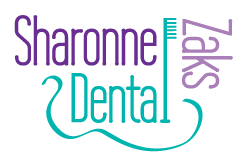For my whole practising life I have gained great fulfilment from working with patients who are anxious/phobic; I love working together and seeing what is possible to achieve over time with patience and commitment, even if the starting place is very difficult.
In March 2017 I decided to take this a step further and embarked on a voluntary mission to address several big issues with a series of freely accessible You Tube videos. You can watch them on the following two pages of this site. I won two grants that funded the professional filming and production. As far as I can see, nothing like this exists in the world so I’m very excited to share this project with you!
One issue is widespread avoidance of dentists by survivors of sexual assault. There are unfortunately many similarities between sexual assault and dental appointments physically, psychologically and emotionally. From lying in the lap of a trusted adult and having your mouth filled up, to the power imbalance, feeling a lack of control, the smell of latex and more. Dental appointments are often a trigger for memories of sexual assault to return, and the understandable anxiety, panic and dissociation…
There are very significant effects of sexual assault on oral health, including those beyond the obvious visible outcomes like injuries and broken teeth. More deeply, shame and low self worth, fear of anger and judgment create many difficulties that need to be addressed with great care.
There is a huge gap in the education of dentists in this confronting area that I am hoping to begin to address with this project. Most of the time we wont be told directly about sexual abuse and so we need to know how to recognise the characteristic fears and behaviours to be able to put a picture together. Roughly 1 in 3 females and 1 in 6 males have been affected; millions of people world-wide. If a patient does disclose their history to us we need to know how to respond sensitively and where we can refer them for further support.
I have adapted the well established ‘trauma informed approach’ to dentistry and created a tool box for dentists and their teams with strategies that can be used before, during and after appointments. These are applicable to survivors of any type of trauma, not just sexual assault. Other topics for dentists include how to care for ourselves during the process of working with trauma survivors and a detailed look at the latest research on how the brain is changed by trauma. There are 3 longer lectures for dentists and one promo video introducing these.
Survivors of sexual assault commonly don’t realise how their history has impacted on their current dental difficulties and the ways the body remembers trauma; they often feel ashamed and isolated, guilty and scared. Survivors will be able to relate directly to other survivors who have been interviewed about their dental experiences and struggles. Topics discussed in the series of 9 videos for survivors include tips and coping strategies for before, during and after appointments, common reactions at the dentist like panic attacks, dissociation and a strong gag reflex, how to find a trustworthy dentist and why oral health is important for survivors.
My hope is that survivors will feel empowered to return to dentists and feel comfortable to let dentists know how they can best support them through any difficulties. I hope a new passion for oral health and its importance also emerges!
With an increased understanding of the scope of the issues and how we can improve our practices with these approaches, I hope dentists will feel more comfortable and confident to work together with survivors of sexual assault and trauma, and that we will be better equipped to handle the complexities involved.
